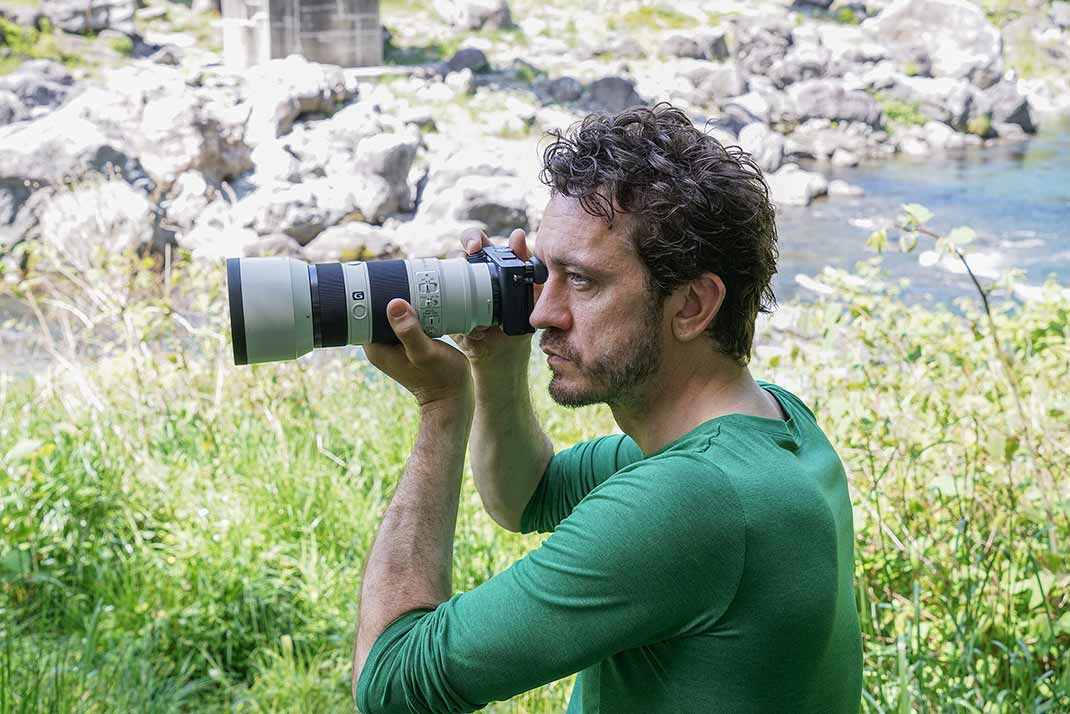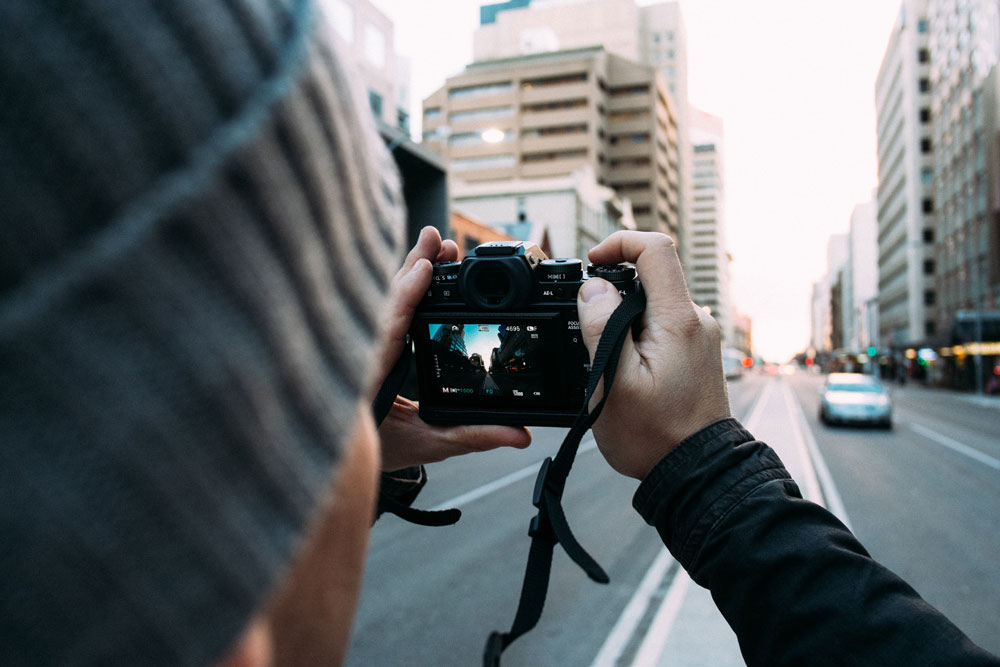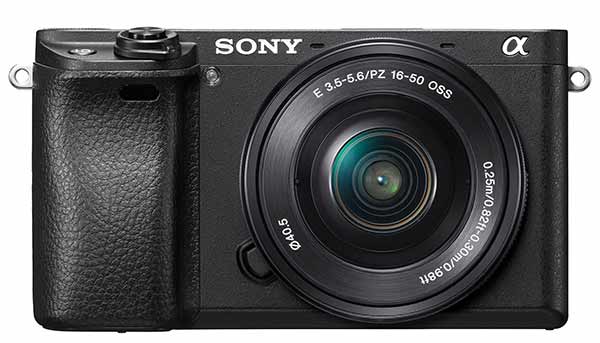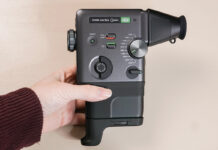
There are a lot of cliches and stereotypes that are associated with photography, like the backwards Kangol hat and leather wristbands that used to be ubiquitous (like the guy in “Just Shoot Me”). I often read in photographers’ biographies a statement along the lines of “I’ve been shooting since my father put a camera in my hands at age 3.” Personally I never had a strong interest in photography until after I left college, and I honestly feel this was no particular disadvantage to me. I believe you can pick up a camera at any stage of your life and begin a journey that is incredibly satisfying and rewarding.
A Good Eye
If you’re a visual person, someone who likes to linger over the interesting things they see and chronicle them in some subconscious filing cabinet, then it’s likely that you’ve been honing one of the most important attributes you’ll need as a photographer—a good eye. By which I mean that sense of pleasing composition, interesting light, and “decisive moments,” as the great Henri Cartier-Bresson used to say. A grounding in photography will give you the tools to deconstruct those images that appeal to you and enable you to explain why you like them. Your challenge then becomes recreating those pleasing elements and putting your own twist on them.
Copy Your Heroes
It occurred to me last week that while you can’t go out and record, say, a Ramones track and sell it on iTunes, you absolutely can go out and recreate any photograph you’ve ever seen and sell it as your own. So don’t ever be afraid to go out and ape the work of other photographers—that‘s how 99% of photographers start out! The truth is it’s actually very difficult to make a plausible recreation of another photograph so the likelihood is that you will end up creating something new, albeit with a heavy influence. (Don’t get me started on the whole Richard Prince fiasco). But what’s really interesting in this practice is when you start to find opportunities for entirely new images within the arena you’ve created or placed yourself in. Simply by going out there with intention, you’re opening yourself up to an infinity of possibilities.
Anyone Can Become A Photographer
Never in the history of photography has there been an easier time to become a photographer. The price of a camera that can capture very high quality images (for example, one with an APS-C or Micro Four Thirds sensor) has dropped to a point of incredible affordability, and processing programs like Lightroom and Photoshop are also very affordable, and at this point I’m sure almost everyone has access to a computer. [Incidentally, I noticed that the Vancouver Public Library offers “Creations Stations” where you can use Photoshop—perhaps there are similar initiatives in your area]. There are also a plethora of ways to get your portfolio online, too many to even begin discussing, but if you’re a serious photographer there is absolutely no excuse in 2016 for not having a beautiful website.
No Single Path
The reality is of course that this low barrier to entry has made it all the more difficult to carve out a career for yourself within photography;it’s hard to forge a path as a full time professional photographer. There are many, many competent photographers out there, and a lot of very good photographers. I don’t say this to dissuade, but rather to point out that it takes a tremendous amount of work and graft to make photography pay. And there really is no formula you can follow, no single path to success, but in fact many different paths. Ask three successful photographers how they got to where they are and you will hear three widely differing stories. What you need to look for are the principles behind their success.
But behind every ascent to the mountaintop, there are a series of shorter climbs, comprised of small steps that move you gradually towards your goal. Photography is a long game and you need to always keep this in mind in order to stay focussed and optimistic.
So let’s start at the start.
Find Your Passion
The very first question you need to answer is: “What do I love to photograph?” If you don’t know the answer to this question then you need to spend more time shooting different subjects. The best subjects are those that we have access to. It’s difficult to be a street photographer if you live in a remote village, for example, or shoot family portraits if none of your friends have kids. Ideally you want to align what you have access to with what you love to shoot. I remember hearing a photographer saying once that “you should shoot what you can’t help but to shoot.” Your photography should fulfill some need within you. For me it fulfills a need to create something beautiful, to be actively engaged in a creative process, and also a need to be good at something, something that is mine. I have incredible respect for musicians and visual artists who use their hands in ways that I will never be able to. Photography offers me a creative space in which I can excel.

Your Portfolio
So when you’ve figured out what it is you are passionate about photographing, you need to go about creating a portfolio of that work. A portfolio is the cornerstone upon which a photography career is built. It doesn’t need to be vast, in fact it needs to be very limited so as not to overwhelm the viewer. Your first portfolio should be twelve really strong images that are tied together either stylistically or thematically. Build it up in groups of three and look for feedback from your peers, friends, colleagues or family. Seeking criticism is a great way to grow as a photographer, but always remember that no one person’s opinion is definitive. I was once told to only seek advice from those who are in a position that I want to be in, and I think this is really important to bear in mind as you pursue photography.
The Graft
These are just my thoughts on how to start your photography career, and in a way creating a portfolio is the easy part. I mean it’s not easy—at all—but it pales when compared to answering the following question: “Who will pay me to create this work?” That’s where the graft comes in: the research, the prospecting, the cold calling, all the things that make artists break out in a cold sweat!
But first things first; find your passion and follow it until you’ve proven to yourself that you have what it takes to create a body of work that will stand out amongst all the other stuff out there. I could wish you good luck, but I believe I can be more helpful by telling you …
… Be persistent!
Visit your local Best Buy to try some of the best cameras available to help you get started developing your passion for pictures.





thanks, Justin Morrison
Becoming a commercial photographer, I found myself drawn to the businesses which told their story. Those that provided a behind the scenes look at the business that showed the work place, the care and attention that went into crafting the products and services and the people who were actually involved. c I developed a much stronger personal connection with them than I did companies who simply showed one product picture and a price
Comments are closed.